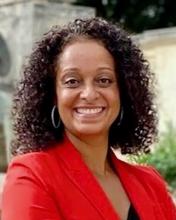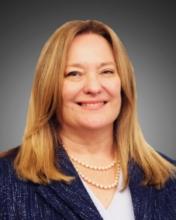Researchers at The University of Texas at Austin have been awarded two highly-competitive and prestigious grants from the National Endowment for the Humanities’ Collaborative Research program for projects that aim preserve our culture and history and lay the foundation for a more just future.
The NEH program is one of few national-level grant mechanisms that support collaborative research in the humanities, making it particularly impressive that two were awarded to UT. The grants will fund these projects:
- "Building Community, Fighting Exclusion: Black Cuban Oral History Project, 1959–present," led by Danielle Clealand, associate professor of Mexican American and Latino/a studies in the College of Liberal Arts
- “Building an Equitable Arts Infrastructure,” co-led by Charlotte Canning, professor, and Paul Bonin-Rodriguez, associate professor, in the Department of Theatre and Dance in the College of Fine Arts
The NEH’s Collaborative Research program works to advance humanistic knowledge through collaboration between two or more scholars. The program encourages projects that propose diverse approaches to topics, incorporate multiple points of view, explore new avenues of inquiry in the humanities and lead to manuscripts for print publication or to scholarly digital products.
"While humanities research is often imagined only as solitary work in archives or writing books, these dynamic projects highlight another aspect of the broad scope of what leading humanities scholarship looks like today,” said Dan Jaffe, vice president for research. “Scholars and funders across all disciplines increasingly recognize the value of interdisciplinary and cross-institutional collaboration to tackle complex questions, and these awards serve as a testament to UT Austin’s leadership in team research.”
Examining Overlooked Aspects of Black History and Experience

Clealand's project will create an open-access digital archive documenting the experiences of Black Cuban immigrants who arrived in the United States between 1959 and 1980. Through extensive oral history collection, archival research, geographic information system (GIS) mapping, and interpretative analysis of the lives of Black Cubans who came to the United States from 1959-1980, Clealand's research will illuminate how Black Cuban immigrants navigated housing discrimination, school segregation and civil rights-era challenges in Miami.
The project will culminate in an interactive website hosting these oral histories, along with detailed GIS mapping of residential and educational patterns. These materials will produce a book, a major archival donation to the Cuban Heritage Collection (CHC) at the University of Miami of nearly 100 oral histories, and an independent, fully accessible website.
"By centering the voices of Black Cubans who have been historically marginalized, we are re-narrating the story of Cuban immigration through a Black Cuban lens,” Clealand said.
Support for Research Around Infrastructure and Equity in the Performing Arts

The Equitable Arts Infrastructure Research Group is developing a national symposium focused on the enduring challenge of cultural, economic and racial equity in the nation’s performing arts sector. The grant also will support the creation of the Arts in Context: Critical Performance Infrastructures anthology series published by UT Press that addresses gaps in understanding about how performing artists in the United States work.
The symposium, planned for Feb. 28 – March 1, 2025 at the Harry Ransom Center, will convene scholars in economic history, labor studies and arts funding and production and will take a historical approach to addressing arts labor in the United States to explore current infrastructure models that invite some cultural professionals while leaving others behind. The symposium is free and open to the public and will be livestreamed on Howlround Theatre Commons.

“The Equitable Arts Infrastructure Research Group believes that defining, theorizing and historicizing new methods and approaches to an equitable performing arts infrastructure through dialog and publication will offer new ways for the performing arts in the U.S. to thrive,” Canning said. “While such ambitious and long-term goals cannot be achieved quickly, we believe that infrastructure change requires intentional and long-term collaboration between humanities scholars who want to bring their methods and knowledge to bear on the questions of equitable performing arts infrastructure and cultural professionals who are willing to invest in the deep knowledge and approaches the humanities have to offer.”

